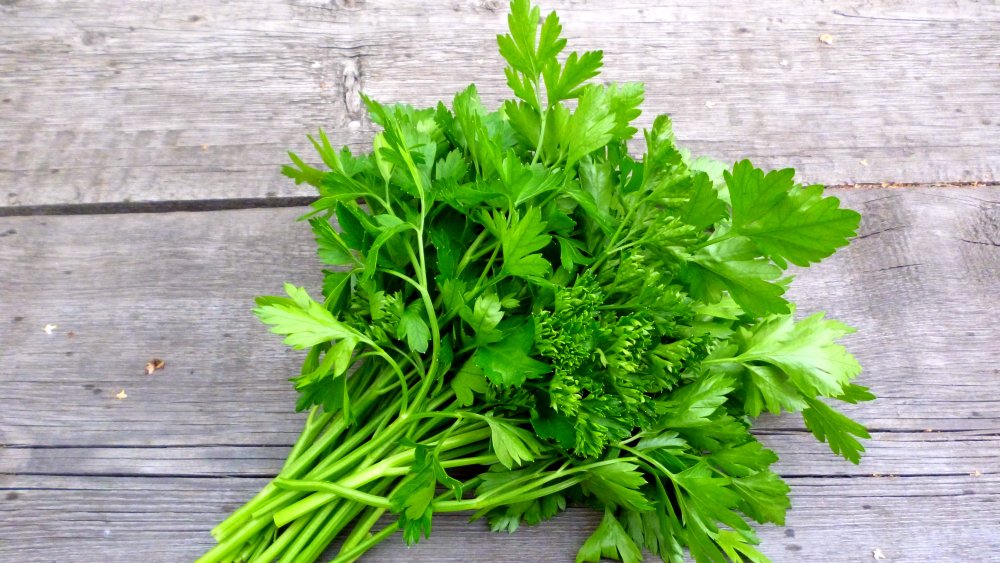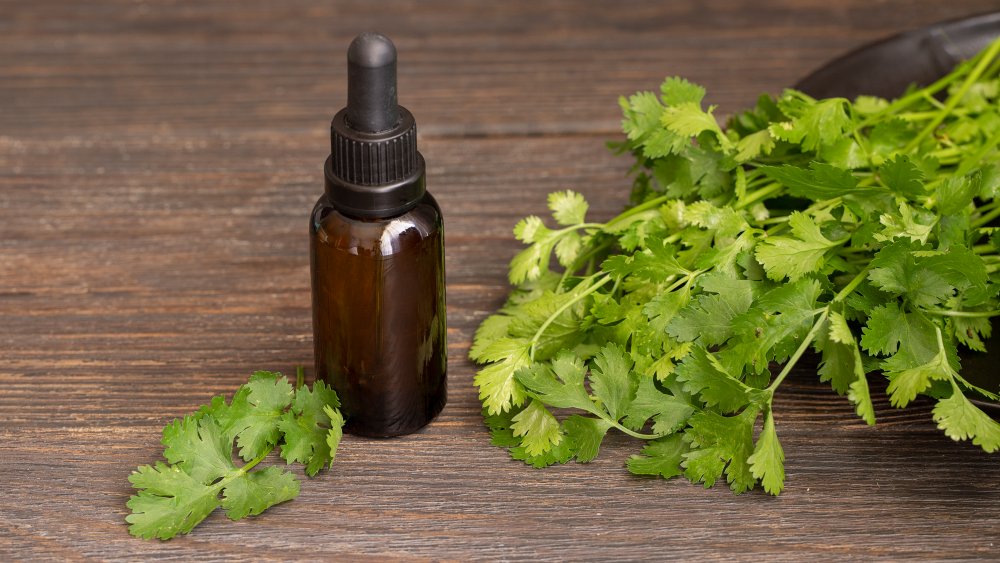When You Eat Parsley Everyday, This Is What Happens To Your Body
We've always thought of parsley as the pretty green garnish that can either sit close to the end of your plate or on top of your dish. For many of us, parsley is an afterthought and is often tossed to the side before we dig in, and admit it — that pop of green makes a plate of meat and carbs look a bit more healthy.
But the next time you are served parsley, you might want to pick it up and munch on it instead of giving it a hard pass, because the small herb might actually surprise you. In fact, you may even want to make parsley a regular part of your daily diet because of all the nutrients it packs in one serving.
Parsley is good for you, no matter what it looks like
There are two kinds of parsley: Italian (flat leaf), and curly, and both are equally nutritious. Eating parsley every day can give your body an extra vitamin boost, because Cleveland Clinic says the leaf packs a load of vitamin A, which is good for your eyes; and Vitamin K, which helps keep your blood and bones healthy. But wait, there's more. Parsley is also rich in vitamin C, and has amounts of folate and potassium. And because it's full of flavor, parsley can be added to many dishes, making it easy to boost your daily vitamin intake (via Healthline).
In case you're wondering whether dried parsley works just as well as fresh parsley does; one study shows that there could be as much as 17 times more antioxidants in dried parsley than there is in fresh parsley — so sprinkle away!
Eating parsley boosts your immune system
You might have heard of flavonoids, plant compounds help your body fight against disease-causing agents. Consuming parsley every day gives you a daily dose of the flavonoid myricetin, which studies show may help protect you against skin cancer, and myricetin is not a one-trick pony. Medical News Today also says that the flavonoid may also work in efforts to prevent or treat diabetes — studies have shown that myricetin carries out several functions, from lowering blood sugar and diminishing insulin resistance, to mopping up extra fat from blood.
Aside from myricetin, parsley also contains a plant chemical known as apigenin, which previous research shows can help decrease the size of tumors caused by an especially aggressive type of breast cancer.
As with most things, moderation is key. You don't want to pound down fistfuls of parsley every day, as there is too much of a good thing — eating a bunch on the regular can have side effects, including anemia, or liver or kidney problems (via WebMD). Adding it to your food is fine, but don't make a habit of eating large parsley-only salads on a daily basis.


